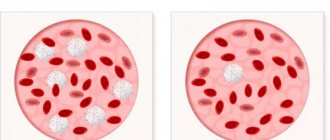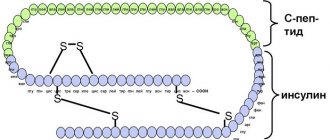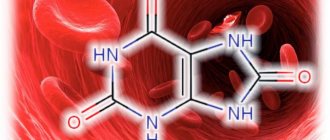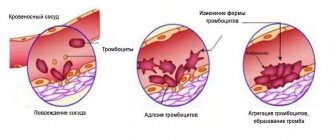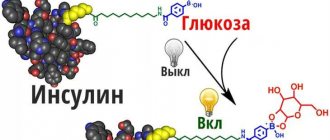The human body produces more than 100 hormones, about 20 of which have a direct impact on the processes of weight gain and weight loss. As soon as their synthesis is disrupted, problems with metabolism and appetite begin. This is such a powerful mechanism of action that no amount of training or dieting will help you get rid of unnecessary pounds if it is not normalized in time.
In order not to suffer from fat folds and a plump figure, you need to know that excess weight and hormones are closely interrelated, and be able to regulate their relationship.
Hormones and excess weight
The process of deposition and mobilization of fat from the human body's depot is controlled by hormones and the central nervous system. The synthesis of fats is possible not only from the products of fat, but also from carbohydrate and protein metabolism. Fats, unlike carbohydrates, may not be immediately used for energy. They are deposited and stored in concentrated form for a long time - obesity develops.
Fats are stored until they are used. Weight loss occurs as a result of the enzymatic breakdown of fats into their constituent fatty acids. This metabolic process is called lipolysis and is stimulated by:
- adrenaline;
- testosterone;
- leptin;
- thyroxine;
- TSH;
- STG;
- ACTH.
Promote fat deposition and inhibit its mobilization:
- insulin;
- glucocorticoids;
- prolactin;
- estrogens.
The mechanism of influence on lipolysis can be direct (adrenaline, growth hormone, insulin) and indirect (glucocorticoids, sex hormones, leptin).
Leptin
Lipids are accumulated in special cells – adipocytes. Adipocytes synthesize a protein hormone called leptin. The word is of Greek origin: λεπτός - thin. Hormone receptors are located in the hypothalamus. Through them, a signal about the size of adipose tissue in the body is transmitted to the brain.
Leptin activates the formation of uncoupling proteins of brown fat, reduces the production of neuropeptide Y, which causes increased appetite and stimulates lipid synthesis. The overall effect of leptin is to reduce appetite and increase the breakdown of fat. Violation of the interaction of the hormone with hypothalamic receptors is one of the reasons for the development of obesity.
Normal levels of leptin concentration in the blood serum of women are 3.63–11.1 ng/ml. Leptin levels rise at night. Inadequate or short sleep at night is a factor contributing to excess weight gain.
Catecholamines
Catecholamines, produced by the adrenal cortex, are hormones and neurotransmitters. As the latter, they transmit electrochemical impulses between nerve cells. Adrenaline, norepinephrine and dopamine are representatives of catecholamines. In terms of the degree of impact on lipid metabolism, the primacy belongs to adrenaline.
Stress, anxiety, injury, and physical activity lead to a sharp increase in adrenaline levels; it is not without reason that it is called the fear hormone. Adrenaline affects almost all types of metabolism. It enhances the breakdown of fats and inhibits their synthesis, causes an increase in blood glucose levels, activates heat generation in tissues, increases the excitability of the nervous system and the effectiveness of adaptive reactions. The normal level of adrenaline in the blood of an adult is 1.0–3.07 nmol/l.
Thyroid hormones
The thyroid gland produces thyroxine (T4) and triiodothyronine (T3). Thyroxine has the greatest influence on the rate of metabolic processes. It has a fat-mobilizing effect and helps increase the breakdown of fats in the liver. With excessive secretion of T4, the absorption of fat in the intestine and its breakdown are activated, and the level of total cholesterol decreases. Therefore, increased thyroid function is accompanied by weight loss.
With thyroxine deficiency, the consumption and energy use of fats from the depot slows down, and the content of atherogenic lipids increases. This provokes the development of atherosclerotic changes in blood vessels. Hypofunction of the thyroid gland leads to excess body weight.
Normal values of thyroxine and triiodothyronine in the blood:
- Total T4 51.0–142.0 nmol/l;
- Free T4 0.01–0.03 nmol/l;
- Total T3 1.07–3.13 nmol/l;
- Free T3 3.9–6.7 pmol/l.
How to choose a good doctor
Often patients, having received a referral, ask: advise a good endocrinologist
When choosing a clinic, you should pay attention to:
- licensing of medical activities of the clinic;
- the experience of the doctor who sees patients;
- reviews of people who underwent treatment.
A good endocrinologist has certificates of achievement in his field of activity and permission to conduct diagnostic studies. It is necessary to make an appointment with an endocrinologist and undergo a preliminary consultation. Then the doctor prescribes examinations and treatment.
The endocrinologist profession is quite multidisciplinary, so it is best to contact a doctor who will deal with a specific disease. If, for example, a patient suffers from a tumor of the thyroid gland, then you should visit an endocrinologist-oncologist.
What does an endocrinologist do, what does the doctor do, and what does he treat? The endocrinologist explains what endocrine disorders are, how treatment measures are carried out, and selects the best treatment option for each patient. The doctor should advise how to prevent exacerbations of the disease, give general recommendations for lifestyle changes, and prescribe a sports regimen.
Bibliography
- Guide for emergency doctors. help. Edited by V.A. Mikhailovich, A.G. Miroshnichenko. 3rd edition. St. Petersburg, 2005.
- Anosova L. N., Zefirova G. S., Krakov V. A. Brief endocrinology. – M.: Medicine, 1971.
- Ovchinnikov Yu.A., Bioorganic chemistry // Peptide hormones. - 1987. - p.274.
- Biochemistry: Textbook for universities / ed. E. S. Severina, M.: GEOTAR-Media, 2003. – 779 pp.;
Insulin
Special cells of the islets of Langerhans of the pancreas are the site of synthesis of a peptide hormone called insulin. Increased levels of glucose in the blood are its main stimulator of formation and secretion. Insulin plays an important role in the metabolism of carbohydrates, proteins and lipids. Its effect on metabolism in general can be described as anabolic - insulin enhances the synthesis of proteins, fats and glycogen (the main form of glucose storage).
Impaired insulin secretion is an important link in the development of obesity. This is also facilitated by insulin resistance - a condition in which high levels of insulin are combined with normal or increased concentrations of glucose in the blood. The lack of response to hormonal effects is due to the development of tissue resistance to insulin.
Insulin promotes the creation of glycogen and lipid reserves in liver cells, skeletal muscles and adipose tissue. Its normal content in women is from 3.0 to 25.2 µU/ml. During pregnancy it is slightly higher: 6.0–27.0 µU/ml.
Primary diagnosis of obesity
Waist circumference, which is measured at the end of a normal exhalation, can be used to diagnose obesity.
- The risk of developing metabolic disorders and diabetes mellitus increases moderately with a waist circumference of 80 cm or more in women and 94 cm or more in men.
- It increases sharply when the waist circumference in women is 88 cm or more, in men - 102 cm or more.
Depending on the location of fat deposits, there are:
- abdominal obesity, when excess fat is located mainly on the stomach and upper torso, as well as in the abdominal cavity, which is most typical for men;
- Gluteofemoral obesity, when excess fat is located mainly on the hips, buttocks and lower torso, which is most typical for women.
Abdominal obesity is considered dangerous.
- Even mild excess weight worsens morbidity and mortality, mainly due to cardiovascular disease.
- This type of obesity increases the likelihood of atherosclerosis and coronary disease, as well as its three main risk factors: arterial hypertension, diabetes mellitus and lipid metabolism disorders - hyperlipidemia.
Ghrelin
Ghrelin is produced by cells of the gastric mucosa and interacts with the centers of the brain, stimulating the secretion of neuropeptide Y. Ghrelin causes a feeling of hunger. Its level rises before meals and decreases after satiety. Impaired ghrelin secretion leads to obesity or, conversely, exhaustion.
Ghrelin is responsible for appetite; the feeling of fullness depends on its level and rate of decline during meals.
Ghrelin is involved in coordinating the body’s energy needs and in regulating the state of the psyche, because in depressive and stressful situations, appetite increases. The norm is 22–30 ng/ml.
Preparation for analysis
Tests are the easiest and fastest way to check your health. Testing is carried out in the form of venous blood sampling.
It doesn’t matter what tests you have to take, you need to prepare for them:
- The best time to donate blood is early morning, from 7:30 and no later than 11:00;
- 12 hours before blood sampling, do not eat;
- Two weeks before the procedure, do not take medications (if this is not possible, notify your doctor about taking medications that can affect the tests);
- For a couple of days it is better not to eat fried and fatty foods, not to drink alcohol;
- It is important to give up cigarettes an hour before and not smoke for at least another hour after the procedure;
- Half an hour before blood sampling, rest a little and avoid any stress or stress.
Testosterone
Testosterone is the main sex hormone in men, but is also produced in small quantities in women. Synthesis occurs in the ovaries and adrenal cortex. Under the influence of testosterone in women, lipolysis increases, the activity of the fat deposition process decreases, insulin resistance decreases, and the blood lipid profile improves.
After 40 years, testosterone production decreases, and fat deposition in the abdominal area occurs more intensely. In women, it normally ranges from 11.0 to 33.0 nmol/l. Indicators depend on the determination method and may differ in different laboratories.
Estrogens
Estradiol, estriol and estrone are sex hormones of steroid origin produced by the female gonads. Estrogens stimulate fat deposition and reduce cholesterol levels in the blood plasma. A woman’s body accumulates fat to meet energy needs when bearing and feeding children; this mechanism is provided by nature.
Lipid metabolism and estrogen concentration are interrelated. With obesity, various menstrual irregularities and infertility are often observed. This is due to both a failure of central regulatory mechanisms and the metabolism of sex hormones in adipose tissue. Estradiol is the most active representative of this group of steroids. Its content depends on the phase of the menstrual cycle:
- follicular phase 12.5–166.0 pg/ml;
- ovulatory phase 85.8–498.0 pg/ml;
- luteal phase 43.8–211.0 pg/ml.
Pituitary hormones
Prolactin, thyroid-stimulating, somatotropic, and adrenocorticotropic hormones are produced by the anterior lobe of the pituitary gland. Their influence on lipid metabolism is significant.
| Hormone | Norm | Action |
| TSH | 0.23–3.4 µIU/ml | Regulates the synthesis of T4 and T3 in the thyroid gland. Hypofunction of the gland is accompanied by a decrease in lipolysis and a tendency to gain weight. Hyperfunction enhances lipolysis processes and is combined with weight loss. |
| STG | 0.01–0.97 ng/ml | Stimulates the elimination and breakdown of fat from the depot. Synthesized during deep stages of sleep. Lack of night rest contributes to the development of obesity. |
| ACTH | 2.2–0.0 pmol/l | Promotes the mobilization of fats from the depot, increases the activity of lipases, accelerates lipid oxidation. |
| Prolactin | 102–496 µIU/ml | Has a lipotropic effect. In women during lactation, excess prolactin leads to the conversion of carbohydrates into fats. |
Examination by a doctor
An examination by an endocrinologist includes palpation of the thyroid gland and regional lymph nodes. The doctor identifies characteristic external signs of diseases:
- hair loss;
- presence of acne;
- bulging eyes;
- lethargy;
- deterioration of motor reflexes;
- decreased tissue sensitivity.
The patient's blood pressure and pulse are measured.
After the examination, the doctor prescribes laboratory blood tests for hormone and glucose levels; you may need to do an ultrasound, MRI, CT scan, scintigraphy or other instrumental studies of organs.
An electrocardiogram is performed to detect heart rhythm disturbances. If cancer is suspected, a tissue biopsy is taken for histological examination. Based on the results of diagnosis and examination, the necessary treatment is prescribed.
Glucocorticoids
Glucocorticoids are produced in the adrenal cortex. Cortisol is one of the main and active hormones of this group. It is a powerful anti-stress substance. Its increased secretion enhances the synthesis of fat from carbohydrates and its subsequent deposition.
For many women, an increase in cortisol levels in stressful situations increases appetite and at the same time slows down metabolism, which contributes to obesity. The level of cortisol concentration is influenced by the time of day - the peak occurs in the morning. The normal range is 171.0–536.0 nmol/l.
The influence of neurohumoral regulation on fat metabolism is not limited to the aspects considered. Treatment of obesity is a complex medical problem. A specialist decides which hormones need to be tested for obesity. But the fact that when fighting excess weight it is necessary to check hormonal levels is beyond doubt.
When to sound the alarm
How to understand that hormones are to blame for obesity?
The first sign is uncontrollable and unexplained weight gain. That is, you haven’t changed anything radically in your life, you haven’t suffered any serious illnesses, no one in your family suffers from this problem, and you began to notice how your clothing size is rapidly increasing.
Uncontrolled weight gain is the first sign of a disorder in the human hormonal system.
The second sign is that proven weight loss methods refuse to work. That is, fasting days, diets, fasting along with training do not bring the desired result.
The third sign is deterioration in health:
- pressure jumps;
- suffer from frequent headaches;
- one feels apathy and indifference to everything;
- libido disappears, potency in men decreases;
- panic attacks are increasingly occurring;
- performance and intellectual capabilities decrease;
- sweating increases;
- everything around is annoying;
- I constantly want to cry and sleep.
Men with hormonal imbalance may notice an unpleasant enlargement of the mammary glands, and not due to muscle mass. It creates a feeling of swelling. Women may experience increased hair growth on the face and body, as well as disruption of the menstrual cycle.
If all three signs are present, it is useless to try to continue to fight excess weight alone, not paying attention to hormones. This is such a serious aspect of health that it is impossible to do without the help of a specialist.
